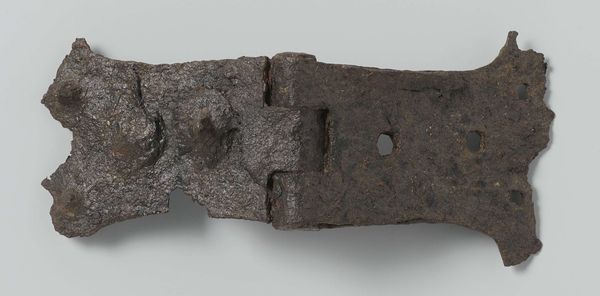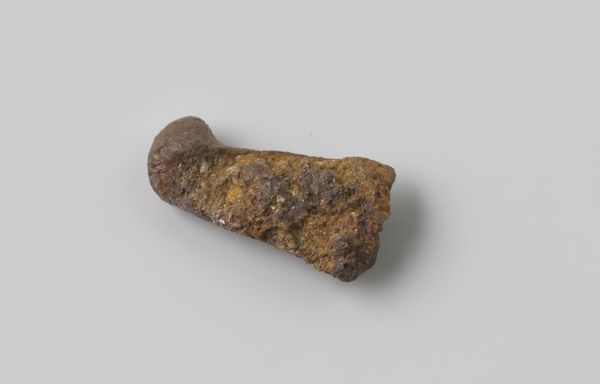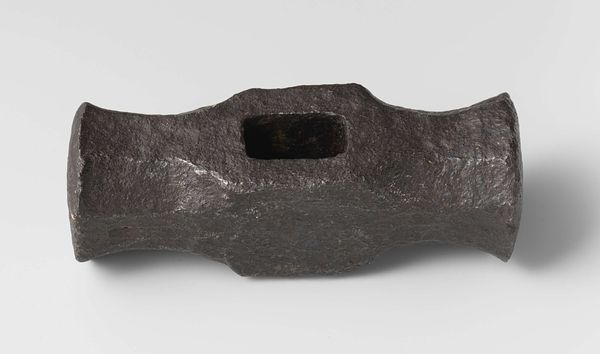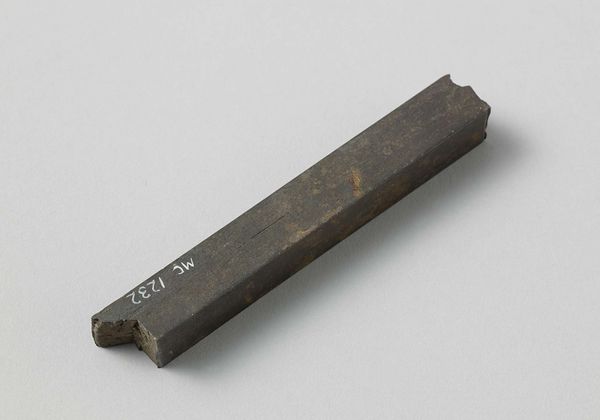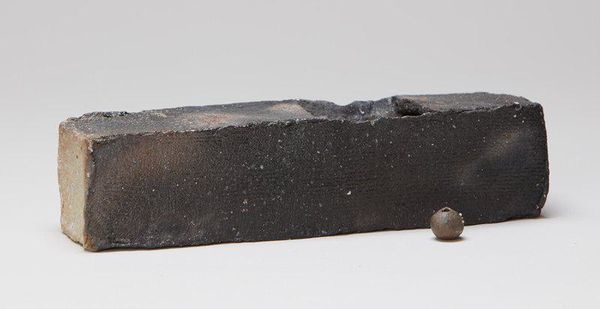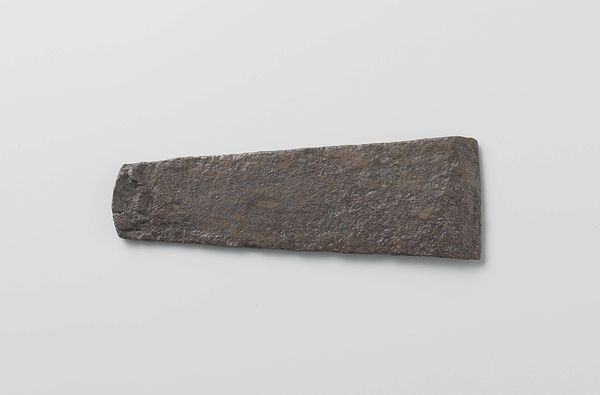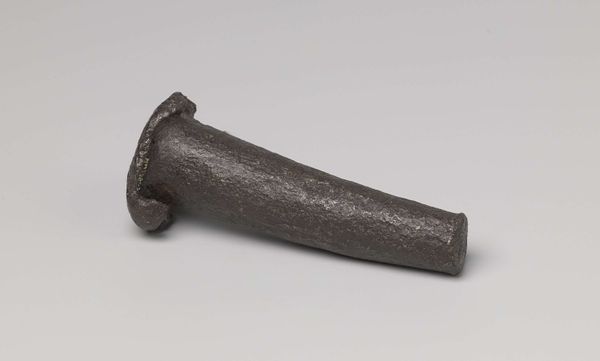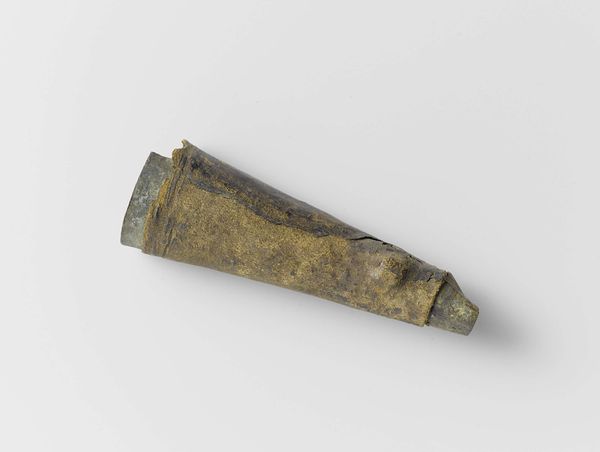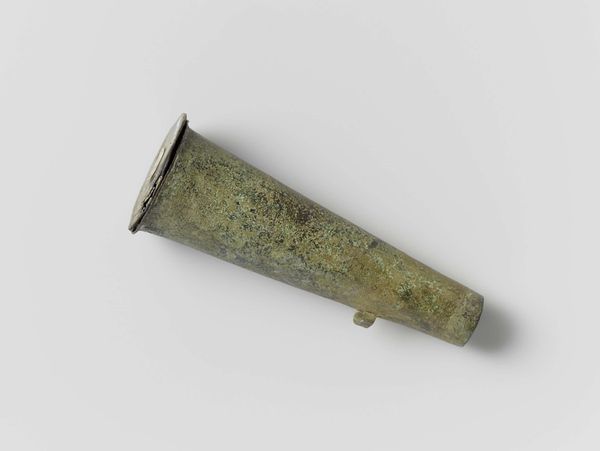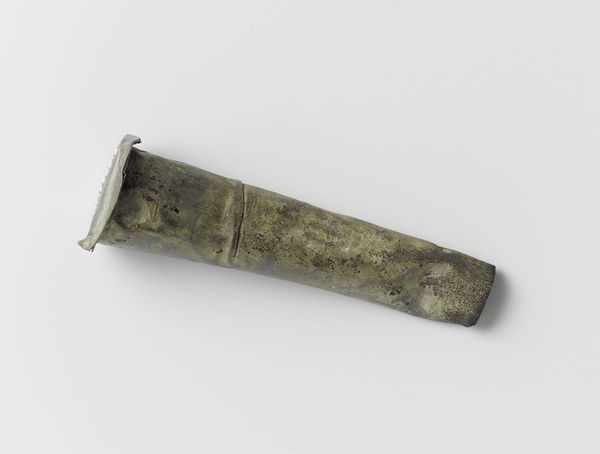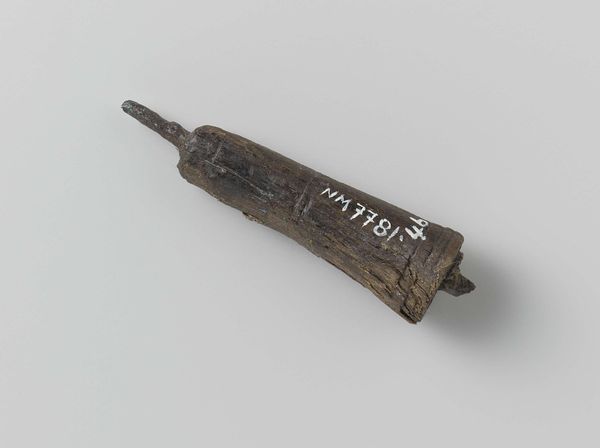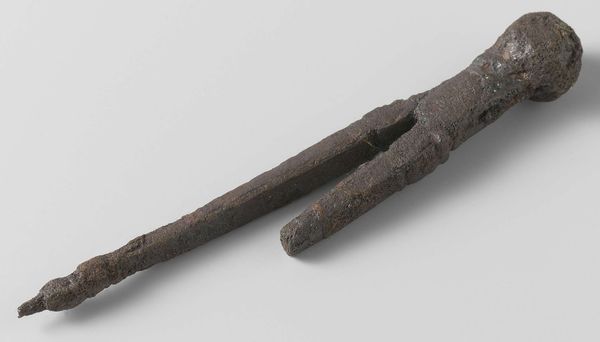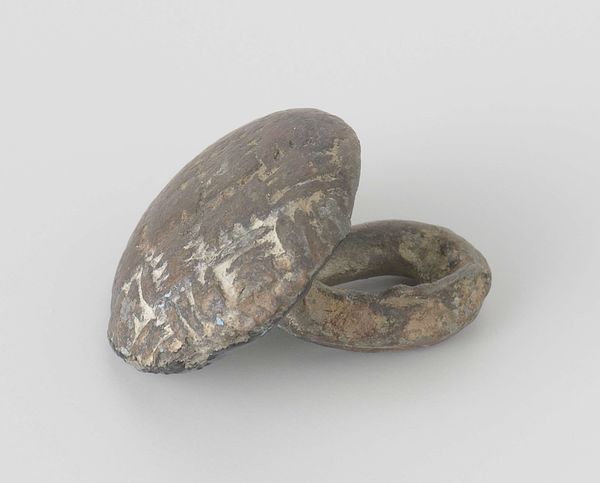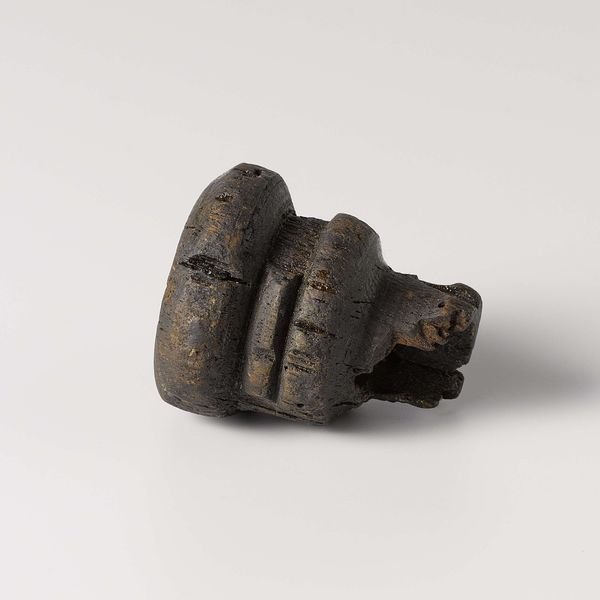
metal, found-object, sculpture
#
metal
#
sculpture
#
found-object
#
sculpture
Dimensions: length 6.5 cm, width 2.2 cm, diameter 2.5 cm
Copyright: Rijks Museum: Open Domain
This is a broken hammer head, made anonymously and of an unknown date. We can tell that the stem is broken. But what does it mean to find an object of labour in a museum context? Broken tools were common in the pre-industrial era, but they were not often displayed. The very existence of the Rijksmuseum depends on the industrial revolution and the social and economic reorganisation of Dutch society. A tool such as this would become obsolete with the arrival of mechanised production, hence its existence in the museum as an object of curiosity. What social relations were involved in the making and using of such a tool? How would it feel in the hand? What social conditions did it help to bring about? These are the questions that the historian of art must ask, using census records, old newspapers, and archaeological reports to illuminate our understanding. Only then can we understand art as something that is contingent on social and institutional context.
Comments
No comments
Be the first to comment and join the conversation on the ultimate creative platform.
